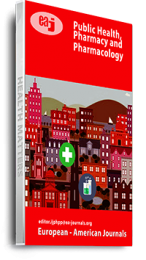Growing multidrug-resistant tuberculosis (MDR-TB) worldwide and new effective and affordable treatment modalities required exploring options such as the community model of MDR-TB treatment (CM), as introduced in Nigeria.To determine the most effective care model by comparing MDR-TB treatment outcomes at community-based sites with the hospital-based model of care in Nigeria.Treatment outcomes data were retrospectively accessed from the medical record of 423 MDR-TB patients to evaluate the effectiveness of HM and CM based on WHO criteria. Treatment success” is defined as the sum of cure and treatment completion. “Cure” is the “treatment completion” with at least three negative cultures taken at least 30 days apart after the intensive phase in the absence of “treatment failure. Predictors of treatment outcomes were also assessed on multivariate analysis. 423 patients (85% of the targeted sampling data) were available for analysis, of whom 272 (63.4%) had a conventional regimen, and 143 (33.8%) had a shorter treatment regimen. There is no significant difference in treatment outcomes between CM and HM; patients achieve similar treatment success in all models, 65.5% with HM compared to 68% at the CM (p = 0.608). Treatment failure was (4.1% versus 5.1%) in the HM versus CM, respectively; (p = 0.704). Death occurred in 20.9% of participants in the hospital model and 17.5% in the community model, and rates of Loss to follow-up were similar 9.5% HM vs 9.5% CM; (p = 0.704). On multivariate analysis, adjusting for age, HIV, sex, patient type, TB treatment history, resistance pattern, model of care and regimens, there was no change in treatment outcomes if patients were treated at the CM vs HM (adjusted odds ratio [aOR] 0.92; 95% CI 0.59 – 1.46, p = 0.735). MDR-TB patients with unknown HIV status (not on ART) were nine times more likely to have unsuccessful treatment outcomes compared with HIV-negative respondents (adjusted odds ratio [aOR] 8.83; 95% CI 1.79 – 43.60, p = 0.007). Similarly, HIV-positive respondents were 1.3 times more likely to have unsuccessful outcomes than HIV-negative (adjusted odds ratio [aOR] 1.26; 95% CI 0.71–2.26, p = 0.429, but the difference is not statistically significant. This retrospective study found that the community-based model is equally effective as care in a centralised hospital, based on similar treatment success rates, comparable default and death rates with hospital care and shorter time to treatment initiation at the community-based centres.
Citation: Abubakar A., Parsa A.D. Walker S. (2023) Effectiveness of Community-Based Multidrug-Resistant Tuberculosis Treatment in Nigeria: A Retrospective Cohort Study, International Journal of Public Health, Pharmacy and Pharmacology, Vol. 8, No.1, pp.18-38
Keywords: Community care, Effectiveness, Hospital care, MDR-TB, Nigeria

